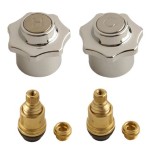Going To Bathroom A Lot
Going to the bathroom a lot can be a nuisance, but it can also be a sign of a medical problem. If you're going to the bathroom more than eight times a day, it's important to see a doctor to rule out any underlying medical conditions.
There are a number of things that can cause frequent urination, including:
- Urinary tract infections (UTIs)
- Interstitial cystitis
- Overactive bladder
- Diabetes
- Prostate problems
- Certain medications
If you're experiencing frequent urination, it's important to see a doctor to determine the cause. Treatment will vary depending on the underlying cause.
In the meantime, there are a few things you can do to help reduce the frequency of your urination:
- Limit your intake of fluids, especially in the evening.
- Avoid caffeine and alcohol, as these can irritate the bladder.
- Double void (urinate twice in a row) each time you go to the bathroom.
- Pelvic floor exercises can help to strengthen the muscles that support the bladder.
If you're still experiencing frequent urination after trying these measures, it's important to see a doctor.
Urinary Tract Infections (UTIs)
UTIs are the most common cause of frequent urination. They are caused by bacteria that enter the urethra and travel up the urinary tract to the bladder. Symptoms of a UTI include:
- Frequent urination
- Burning or pain during urination
- Cloudy or foul-smelling urine
- Pelvic pain
UTIs are usually treated with antibiotics. It's important to take the antibiotics as directed and to finish the entire course of treatment, even if you start to feel better.
Interstitial Cystitis
Interstitial cystitis is a chronic condition that causes inflammation of the bladder. Symptoms of interstitial cystitis include:
- Frequent urination
- Painful urination
- Pelvic pain
- Urinary urgency
There is no cure for interstitial cystitis, but there are treatments that can help to relieve symptoms. These treatments may include:
- Medications
- Bladder instillations
- Physical therapy
Overactive Bladder
Overactive bladder is a condition in which the bladder muscles contract too often, causing frequent urination. Symptoms of overactive bladder include:
- Frequent urination
- Urinary urgency
- Nocturia (waking up at night to urinate)
- Urinary incontinence
There are a number of treatments for overactive bladder, including:
- Medications
- Bladder training
- Electrical stimulation
Diabetes
Diabetes is a chronic disease that affects the body's ability to produce or use insulin. One of the symptoms of diabetes is frequent urination. Other symptoms of diabetes include:
- Increased thirst
- Frequent hunger
- Weight loss
- Fatigue
- Blurred vision
Diabetes is treated with medication, diet, and exercise. If you have diabetes, it's important to manage your blood sugar levels to avoid complications, such as frequent urination.
Prostate Problems
Prostate problems, such as an enlarged prostate or prostatitis, can also cause frequent urination. Symptoms of prostate problems include:
- Frequent urination
- Difficulty starting or stopping urination
- Weak or slow urine stream
- Dribbling after urination
- Pelvic pain
Prostate problems are usually treated with medication or surgery. If you have prostate problems, it's important to see a doctor to discuss treatment options.
Certain Medications
Some medications can also cause frequent urination. These medications include:
- Diuretics (water pills)
- Caffeine
- Alcohol
- Anticholinergics
If you're taking a medication that's causing frequent urination, talk to your doctor about other options.

Frequent Causes What It Means How To Stop

Diabetes Type 2 Symptoms Get A Urine Test If You Find Re Going To The Toilet Lot Express Co

Diabetes Type 2 Symptoms Get A Urine Test If You Find Re Going To The Toilet Lot Express Co

11 Meds That Can Make You Want To Goodrx

8 Reasons You Re Pooping More Often Grady Health

Why Do I Poop So Much Causes Treatment And Prevention

Pollakiuria Symptoms Treatment And Management

Frequent Symptoms Causes And Treatment

5 Things To Know About Nocturia Temple Health

Frequent Pregnancy What It Means And To Do About Babycenter
See Also







